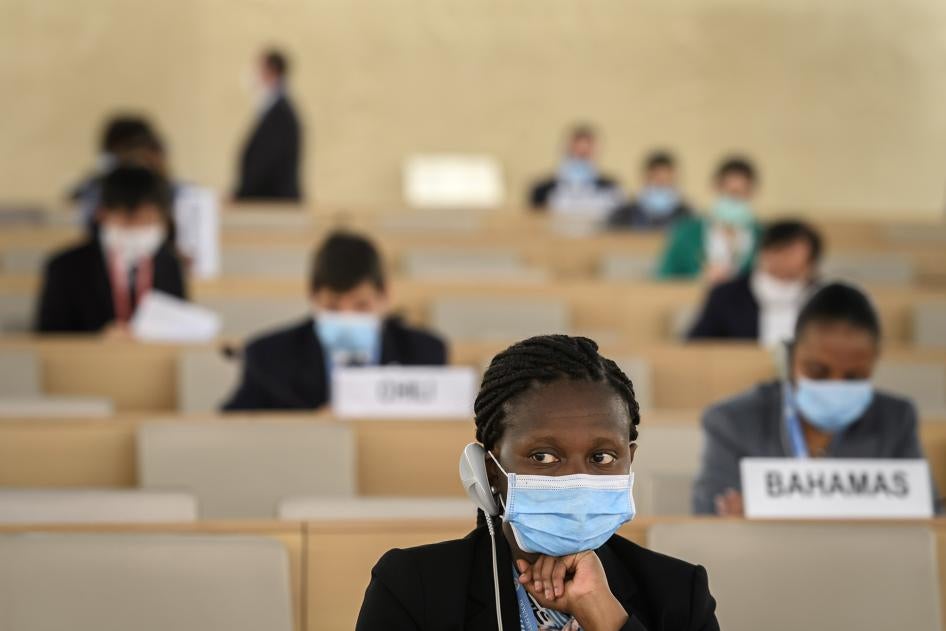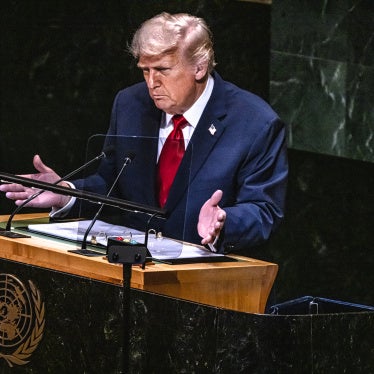Madam Vice-President,
We thank the High Commissioner for the presentation of her report on systemic racism and welcome her agenda towards transformative change for racial justice and equality. We echo the concerns raised in the report on the deeply entrenched nature of systemic racism against Africans and people of African descent, which the HC notes spans all spheres of life, from police encounters to health, education, employment, and housing. We also welcome the attention the report brings to the legacies of enslavement, colonialism, and the transatlantic trade of enslaved Africans and how these continue to shape systemic racism in laws, policies, and practices today.
At a time when a growing chorus around the world is calling for fundamental, systemic reforms to advance racial justice, accountability and reparations, it is shameful to see a number of states at the Council, many of them former colonial powers, defend a business-as-usual response to the High Commissioner’s call for transformative change. Business-as-usual will not do in addressing racism domestically, and it will not do in addressing it at the Council.
The brutal police murder of George Floyd in the United States that triggered the urgent debate last year that produced the mandate for this report was not an isolated incident. It was symptomatic of a widespread climate of impunity surrounding police killings, racial profiling and other human rights violations against people of African descent in many countries, as well as bias and discrimination in many aspects of their life, that will continue until states meaningfully grapple with their harmful legacies and seek to repair their far-reaching damage. Just to give an example, police in Brazil killed 25,000 people in the last five years. Black Brazilians are almost three times more likely to be killed by police than white Brazilians.
We urge the Council to heed the High Commissioner’s call for a specific UN mechanism to spur transformative change, and adopt a resolution establishing an international and independent mechanism to investigate and enhance accountability for past and current human rights violations against people of African descent in the US, Latin America, Europe and around the world.







